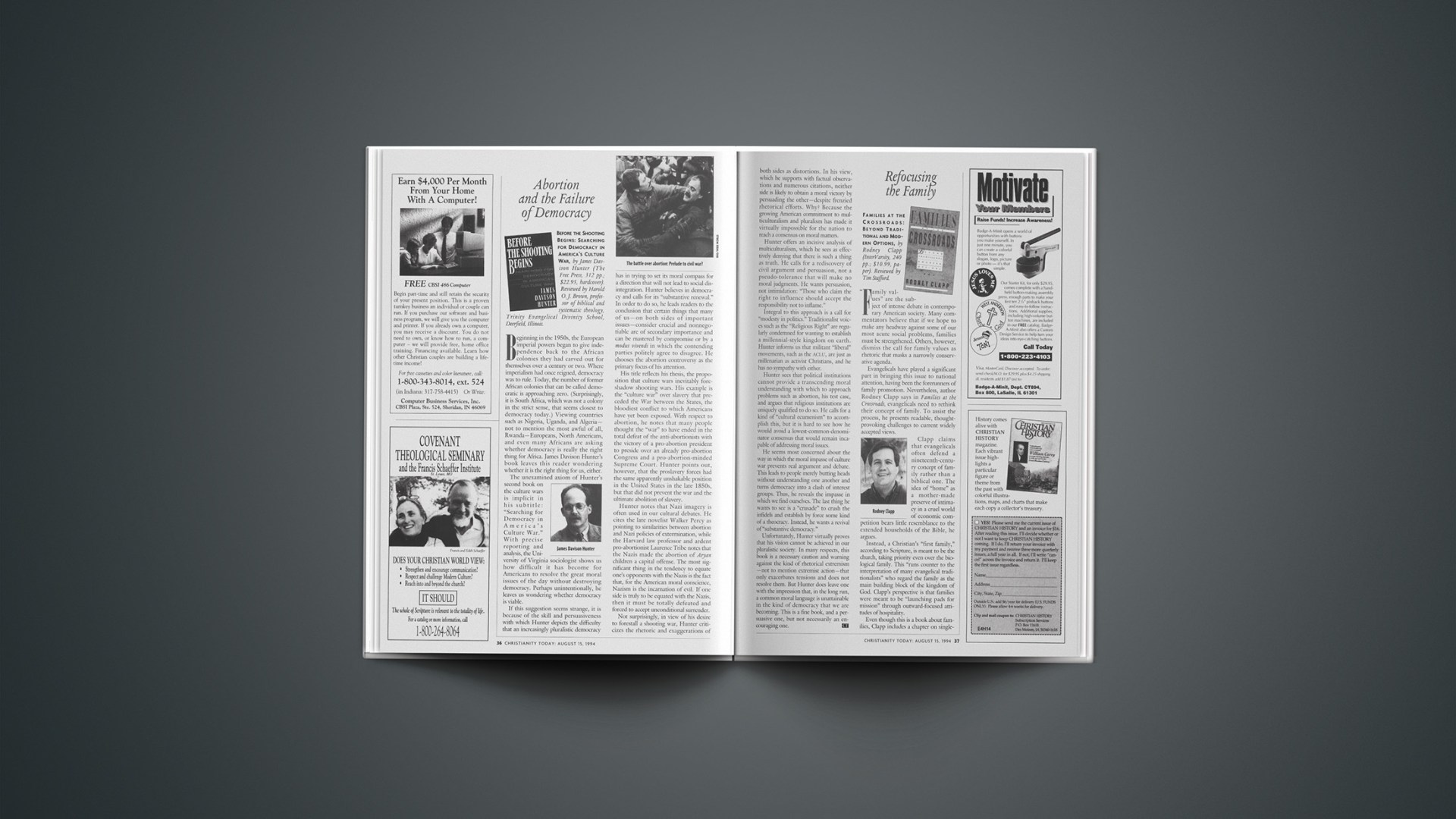“Families At The Crossroads: Beyond Traditional And Modern Options,” by Rodney Clapp (InterVarsity, 240 pp.; $10.99, paper). Reviewed by Tim Stafford.
“Family values” are the subject of intense debate in contemporary American society. Many commentators believe that if we hope to make any headway against some of our most acute social problems, families must be strengthened. Others, however, dismiss the call for family values as rhetoric that masks a narrowly conservative agenda.
Evangelicals have played a significant part in bringing this issue to national attention, having been the forerunners of family promotion. Nevertheless, author Rodney Clapp says in “Families at the Crossroads,” evangelicals need to rethink their concept of family. To assist the process, he presents readable, thought-provoking challenges to current widely accepted views.
Clapp claims that evangelicals often defend a nineteenth-century concept of family rather than a biblical one. The idea of “home” as a mother-made preserve of intimacy in a cruel world of economic competition bears little resemblance to the extended households of the Bible, he argues.
Instead, a Christian’s “first family,” according to Scripture, is meant to be the church, taking priority even over the biological family. This “runs counter to the interpretation of many evangelical traditionalists” who regard the family as the main building block of the kingdom of God. Clapp’s perspective is that families were meant to be “launching pads for mission” through outward-focused attitudes of hospitality.
Even though this is a book about families, Clapp includes a chapter on singleness. He reminds readers that the Bible honors singleness as much as marriage: “A defective interpretation of Christian family is [one] that … denigrates and dishonors singleness.”
Another novel concept that Clapp presents is that the church needs to be wary of falling prey to a market-driven way of thinking. ” ‘The family that prays together, stays together’ is not such an innocent statement,” Clapp writes. “If we worship and pray to God because that will strengthen our family, then we make worship and prayer (and God) into investment techniques that serve our ends.”
Unlike other analysts, Clapp does not make rampant secularism the main culprit for the modern family’s problems; instead, he points to capitalism. The mindset of the market, Clapp suggests, is the real reason why families are weak. Spouses treat marriage as a business deal, not as an everlasting covenant. Similarly, parents find it difficult to sacrifice on behalf of children. After all, what will they get out of it?
His indictment of capitalism, though insightful, makes capitalism too important. If the market mindset were so potent, why did 150 years go by before it invaded and destroyed the home? Other factors must have been involved. Capitalism only became the universal solvent, dissolving all values into what’s in it for me? after a deeper revolution occurred—the revolution against God. Thus, the church can be a powerful countervailing “first family” on one condition: that it fears God.
Moreover, while Clapp’s analysis of the excesses of evangelical attitudes toward the family is persuasive, he doesn’t adequately place those attitudes in the context of a society so lacking in moral consensus that the very definition of what constitutes a family is a matter for acrimonious controversy. It is not without reason that many evangelicals feel that the family is under siege.
Clapp is at his best when dealing with biblical material. Christians will find solid arguments here to help them move past the current trend to glorify family for family’s sake. Clapp is right that appealing to “traditional values” will change nothing, for these are not traditional times.
Neither will indicting capitalism’s values stop people from pursuing anything that makes them feel bigger, unless they truly believe that, one day, they must answer to Someone before whom they are really very small. And in today’s society, this is a value worth promoting.
Copyright © 1994 Christianity Today. Click for reprint information.










